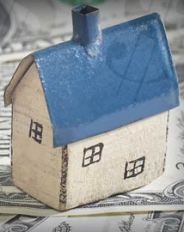How do reverse home mortgages work?
By Catalogs Editorial Staff

Discover the basics.
Spend some time listening to the many financial commercials on T.V., and you may ponder, how do reverse home mortgages work? This is a particularly important question when you have retired and are living on a fixed income. The fact that you are on a fixed income usually closes the door to qualifying for most traditional home mortgages, which may cause anxiety for people who are low on cash.
The thought that you may not have a place to live if you mortgage your home, and with a limited income you would never qualify to buy another home, becomes a frightening thought for most people who are in their retirement years. Home mortgages are based on your income and your expenditures. If you are living from paycheck to paycheck and only able to pay your bills every month with just enough money left over to buy food, medication and to take care of general household expenses, you most likely will not be qualified for a traditional home mortgage loan. So the question arises, how do reverse home mortgages work if your income is limited?
Reverse home mortgages are made available to borrowers who own their homes. The individuals that fall into this category are usually retired and have lived in their home for several years. Individuals qualify for a reverse home mortgage if the home is paid for or the homeowners only have a small amount due on the balance. This small amount will be paid off with some of the equity received from the reverse home mortgage. The remainder of your equity or value of your home will be used to calculate the amount of cash you can receive.
~
How do reverse home mortgages work to help someone who is retired? This is a question that the Housing and Urban Development (HUD) has spent some time and resources to answer. HUD’s Reverse Home Mortgage is a federally-insured private loan, and it is a safe option for individuals who are retired and who need additional income to supplement their social security check or other retirement funds. Some important facts about federally-insured reverse home mortgages include:
- This type of home mortgage does not require you to make monthly payments or to pay the loan off unless you move out of the home.
- Your home will never be foreclosed on with a reverse home mortgage.
These statements are an added assurance for most retired people who live on a fixed income.
A reverse mortgage allows individuals to convert some of their equity to additional income. This income can be paid out in several ways, with the stipulation that one borrower lives in the home as a primary residence. These payment options can include equal monthly payments, monthly payments for a fixed period of months selected by the borrower, a line of credit that is used at the borrower’s discretion until the credit is exhausted, or a combination of a line of credit with monthly payments for as long as a borrower lives in the home.
Popular Savings Offers











